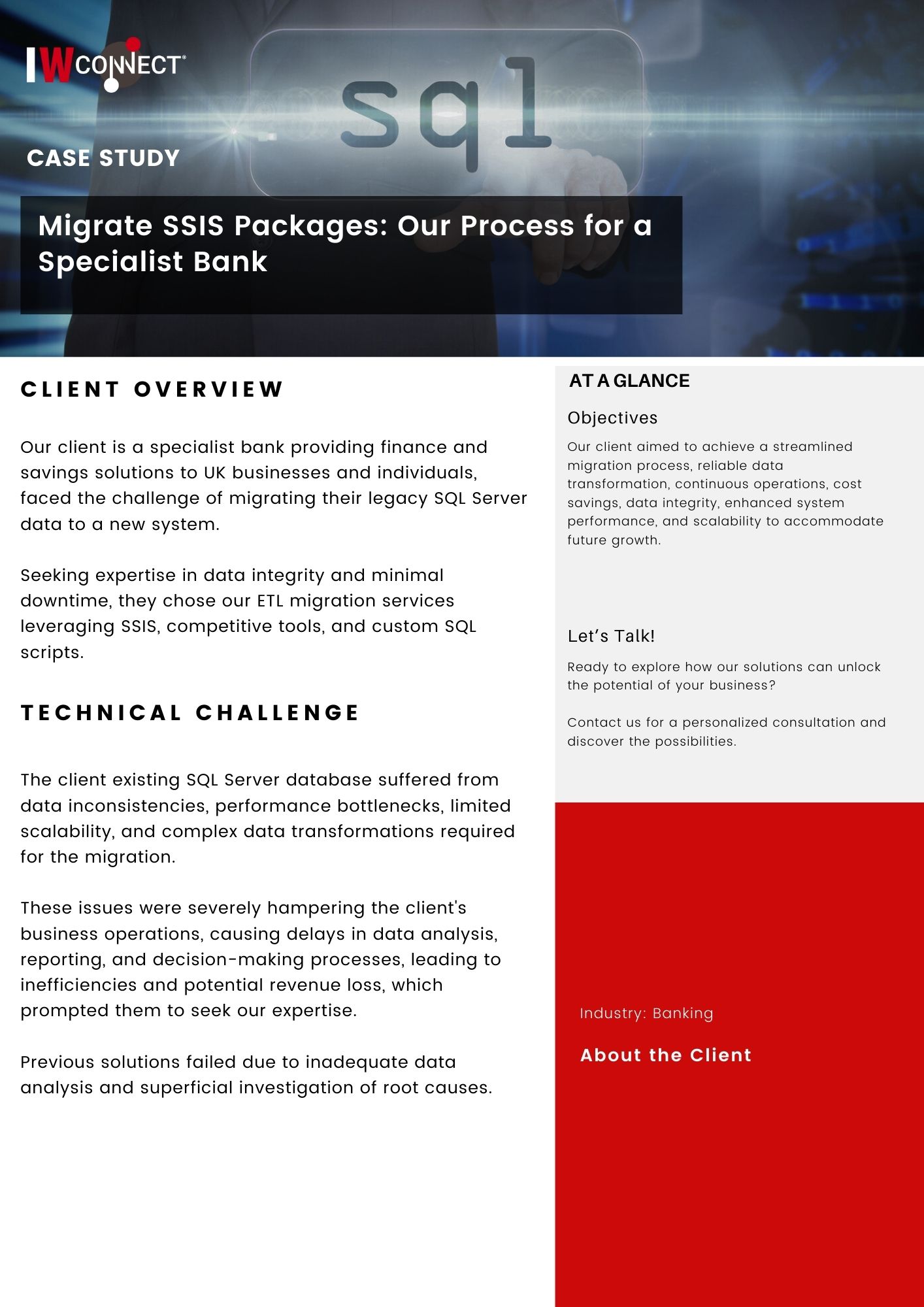The SSIS Migration Challenge
Our client needed to migrate a vast amount of data from their legacy SQL Server system to a new environment. However, their existing database suffered from data inconsistencies, performance bottlenecks, limited scalability, and complex data transformations required for the migration.
These issues were severely hampering the business operations of the client, causing delays in data analysis, reporting, and decision-making processes, leading to inefficiencies and potential revenue loss. Their previous migration attempts by other providers failed due to inadequate data analysis and failure to address root causes of the discrepancies.
So, they sought our reliable solution to streamline the migration process while ensuring data integrity, continuous operations, and cost efficiency. We leveraged our expertise in ETL processes utilizing SSIS packages, competitive tools, and custom SQL scripts to deliver an efficient and scalable data management platform.
Migrate SSIS: The Solution
Our team conducted in-depth analyses of our client data architecture and workflows, tailoring an ETL migration solution leveraging SSIS packages, SQL scripts, data warehousing, and complex stored procedures.
Through iterative development, collaborative sessions, and rigorous testing, we overcame obstacles related to data compatibility and system integration. The two-year implementation included meticulous planning, dress rehearsals, and seamless integration with existing systems.
Business Value
By partnering with us, the client experienced transformative results, including a 50% reduction in data processing times and manual effort, $100,000 in annual cost savings, and improved data accuracy.
Quantitative gains encompassed a 30% increase in operational efficiency, 20% revenue growth from enhanced marketing capabilities, and a 15% boost in customer satisfaction scores.
Qualitatively, they benefited from enhanced decision-making, scalability, cross-functional collaboration, and regulatory compliance.


